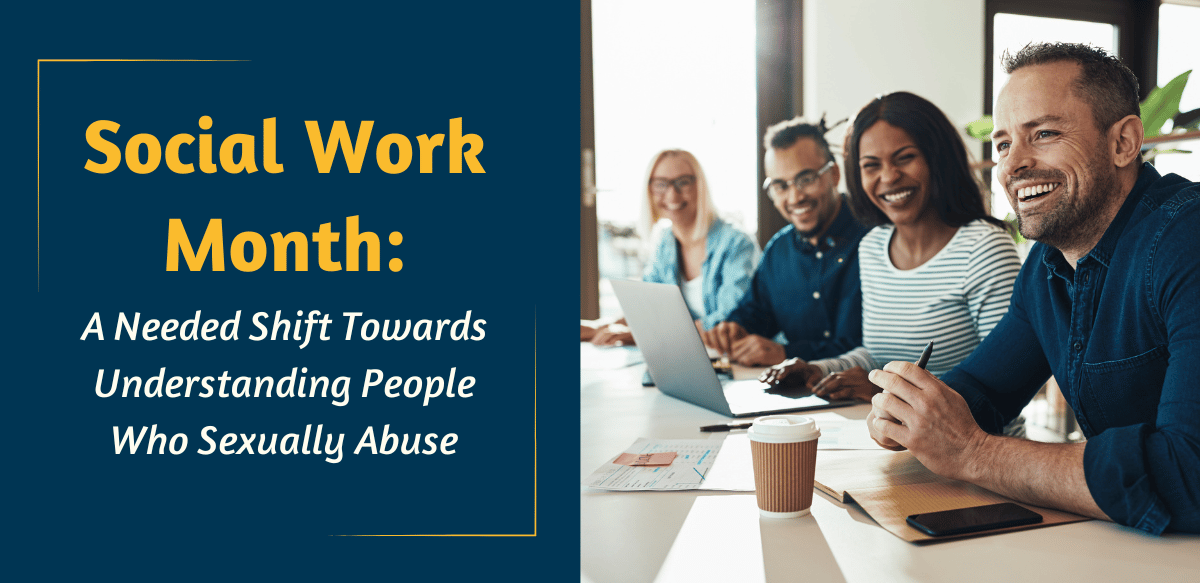
If you conduct a web search of “famous psychotherapists,” you’ll get a long list of well-known names such as Freud, Rogers, and Jung, and even famous fictional therapists such as Dr. Fraser Crane from Frasier and counselor Deanna Troi from Star Trek: The Next Generation. But if you do a search of “famous social workers,” that list, though long, probably won’t contain familiar names. Clearly, the social work profession (one of the fastest growing careers in the US, with over 600,000 people earning the degree and providing an estimated 60% of mental health services) does not get the kind of attention it deserves.
Social Work Month: A Celebration of Empowerment and Advocacy
March is Social Work Month, dedicated to celebrating social workers’ invaluable contributions to society. Organized by the National Association of Social Workers (NASW), Social Work Month has been celebrated every March since 1963. NASW first launched the celebration to raise public awareness of the profession. In 1984, the U.S. Congress officially designated March as National Professional Social Work Month.

Last year the Safer Society Foundation convened a unique panel of five social work professors, consultants, and researchers to discuss the challenges facing the field today, with a particular focus on the complexities of sexual abuse treatment. The panel shared insights and recommendations on topics such as how social work’s holistic “person-in-environment” perspective and strengths-based approach have informed the evolution of the treatment of individuals who have committed sexual abuse. Several ideas were shared regarding the future of sexual abuse treatment, including the need to “flip the conversation” and take a more offender-centered perspective in our work, and how it is time to remove the stigma around working with those involved in sexual offenses.
The expert panel included:
- Dr. Melissa D. Grady, MSW and Ph.D. from Smith College School of Social Work
- Tom Leversee, LCSW, Colorado Division of Youth Corrections
- Jamie Yoder, Ph.D., MSW, Associate Professor of Social Work, Colorado State University
- Christopher Lobanov-Rostovsky, LCSW, Colorado Division of Criminal Justice
- Adam Brown, Ph.D., Assistant Professor of Social Work, Silberman School of Social Work at Hunter College
- David Prescott, LCSW, Director of the Safer Society Continuing Education Center.
The Person-In-Environment Perspective
A key feature of the panel discussion is the emphasis on how social workers have encouraged the adoption of a “person-in-environment” perspective in sexual abuse treatment. This approach goes beyond solely examining an individual’s mental health and emotional wellbeing, as social workers embrace a comprehensive outlook that considers the impact of larger systems and environments on their clients. These include risk and protective factors present in the family, the community, and society as a whole. This “ecological framework” also considers factors such as structural racism, intergenerational trauma, and socioeconomic disadvantage. By focusing on the complex interplay between a person and their environment, the social work perspective has advanced the development of effective prevention and intervention strategies.
Another focal point of the social work perspective that has recently gained increased attention is the emphasis on utilizing “person-first language.” In the video, Jamie Yoder discusses the importance of referring to a client as “a person dealing with depression” instead of categorizing them as “a depressed person” or as “a depressive.” This approach humanizes the person by recognizing that their current struggles are only one aspect of their identity. A brief excerpt of her discussion on this topic is contained in the video below:
Social Work and Preventing Sexual Abuse: The Importance of Consent
Research by RAINN (Rape, Abuse & Incest National Network) estimates that every 68 seconds, an American citizen experiences sexual assault, and every 9 minutes, the victim is a child. The panel discussed in detail how important it is that young people understand consent and the challenges facing social workers in an era where differing views among parents, schools, and public policies make the discussion of sexual abuse with youngsters a difficult one to have. As Tom Leversee points out:
“We need more prevention efforts to educate youths about consent, about what’s developmentally appropriate sexual behavior, what constitutes illegal behavior, and what constitutes abusive behavior. Those of us that work with adolescents find many youths coming into the system who are very young, are socially/emotionally immature, and lack an understanding of some of these basic things, and they’re engaging in behaviors driven more by their social emotional immaturity and their lack of knowledge about consent.”
Tom Leversee
The panelists highlight another obstacle confronting the social work profession: a stigma and a reluctance among social workers to “work with those people,” referring to individuals who have sexually abused. Trying to be helpful in cases such as these is an emotional challenge for all involved, but as the panelists point out, it is imperative that we actively engage in addressing and treating this issue if we want to end sexual violence.
An Offender-Centered Perspective
Dr. Yoder brings attention to another important direction for the field of social work, which is the need to shift from the tendency to focus solely on the victim, to focusing on the person who perpetrated the offense. What were their risk factors in their family and their social environment? The field must move away, she says, from putting the onus of preventing sexual violence solely on potential victims (e.g. teaching risk reduction) and instead equipping people, especially young males, with education and skills to prevent them from becoming perpetrators of sexual violence in the first place.
We’ll conclude with a question posed in the video: is it helpful to think of victims of sexual assault as “survivors”? You might be surprised. We think you’ll find this discussion eye-opening, and we encourage you to click the “Watch” button below.
